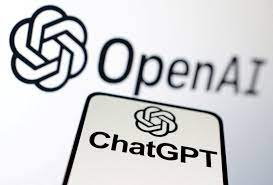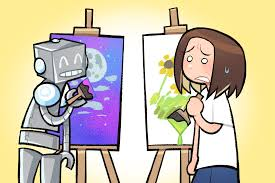ChatGPT and Plagiarism: A Struggle for Authenticity
Introduction
In the age of advanced artificial intelligence, ChatGPT has emerged as a revolutionary language model capable of generating human-like text. Developed by OpenAI, ChatGPT is built on the GPT-3.5 architecture and has been integrated into numerous applications, from customer support to content creation. However, with its immense capabilities comes a pressing concern: plagiarism. This blog post delves into the connection between ChatGPT and plagiarism, exploring the challenges of maintaining authenticity in an era of AI-generated content.
The Promise of ChatGPT
ChatGPT was designed to help users access natural language processing capabilities without the need for extensive programming knowledge. By providing a user-friendly interface, the AI model opened up exciting possibilities for businesses, writers, and students alike. Tasks that once required hours of research and writing could now be accomplished efficiently and with ease, with ChatGPT serving as an indispensable writing assistant.
The Plagiarism Predicament
Despite its promising potential, the surge in ChatGPT's popularity has led to an increased concern over plagiarism. As the tool can generate text that resembles human writing, the line between original content and AI-generated material blurs. This has made it easier for some individuals to resort to unethical practices, using ChatGPT to plagiarize others' work and passing it off as their own.
Educational Institutions' Dilemma
The widespread availability of ChatGPT poses a significant challenge to educational institutions. Teachers and professors face an uphill battle in detecting plagiarism in students' assignments. With AI-generated content now readily accessible, traditional plagiarism detection tools might fail to recognize such instances. As a result, maintaining academic integrity becomes increasingly difficult. This is more and more of a problem when students find out they can put in a certain amount of errors in their finished product, or they can change a few lines and get right past the automated detections.
Combatting Plagiarism with Technology
While AI has contributed to the plagiarism predicament, it can also serve as a potent tool to combat it. Developers and researchers are actively working on creating advanced plagiarism detection systems that can distinguish between original human-authored content and AI-generated text. By leveraging AI's capabilities for the greater good, these tools aim to protect intellectual property and promote ethical writing practices. Clear guidelines and ethical standards must be established and communicated to encourage responsible use of AI language models.
It isn't too difficult to tell when something has been created by AI versus being created by a human. For art, a lot of the times, hands and eyes are buggy and incomplete. Text and writing usually follows a format and there isn't necessarily a voice. I'm sure there are other methods to detect use of AI generated products, but for now, a lot of what we can do is just use our best judgement.
Cultivating Responsible AI Use
While it is true that ChatGPT can be exploited for plagiarism, the responsibility ultimately lies with the users. Technology is a tool, and it should be used as so. There are a lot of people going around and using ChatGPT to make money off of something that they didn't even create, and there in and of itself lies a huge moral battle. Is it okay for someone to profit off of someone else's hard work? This is especially present in art. Generative AI can be used for inspiration, and it can also be used to complete tedious and mundane tasks such as writing a cover letter or a college application essay on repeat for everything one applies for, but it should not be used for much more than that. It is incomplete by itself.
Conclusion
The rise of ChatGPT has undoubtedly transformed the way we interact with language and AI technology. However, with this transformation comes the challenge of maintaining authenticity and combating plagiarism. As we continue to harness the power of AI, it is essential to address the ethical implications of its use. By fostering awareness, promoting critical thinking, and cultivating responsible AI use, we can strike a balance between the benefits of AI-generated content and the preservation of intellectual integrity. Together, we can build a future where technology and human creativity coexist harmoniously.
(Written with support from generative AI)




Here's the thing: "ChatGPT's popularity has led to an increased concern over plagiarism." Yes it's led to an increase in concern but we have no data to show that students are "plagiarizing" more now then they did before ChatGPT. I'd love to see some data that it's actually increased. I think we're just more aware that it could rather than it actually has....until I see data that's what I"m holding too.
ReplyDelete